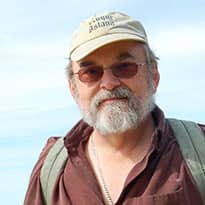But one cannot be a Catholic and a Quaker. Or a Southern Baptist and a Quaker. The Catholic and Southern Baptist God is wholly without, the world fallen, and our own minds suspect as deluded tools of error or worse in the absence of churchly domination.
Hence, if the earlier points are true, the long record of atrocities and depravities committed by Catholics and Southern Baptists thinking they are acting as God wills, and so overriding their humanity, as Lenin admitted he had to override his. The packaging is different but the heartless contents are remarkably similar.
Both Pagans and Quakers believe that the sacred manifests immanently, within the world. As such, we believe our nature, when we listen, is in harmony with or even an expression of the divine. Empathy and compassion are to by honored, respected, and perhaps most importantly, trusted.
The recent speech given by Republican State Representative Maureen Walsh, of Washington, voting in favor of gay marriage despite her party, is an excellent example of how when the heart overrides theology, very compassionate things happen.
If this is true, then religions of sacred immanence and the divine within will likely encourage greater compassion and generosity by encouraging connection with the heart rather than dogma. They do so by making us more aware of the larger contexts within which we live our lives, and that these contexts are ones best appreciated through the heart. I predict that experiments comparing very religious transcendental monotheists and very religious believes in sacred immanence will uncover a most interesting difference.
Compassionate Atheists
Perhaps here is one place where many atheists and Pagans can find interesting common ground. Many atheists love this world, they exult in its beauty, are fascinated by its subtle rationality, and intrigued with our efforts to better understand it. Recent scientific work is demonstrating that morality exists within animal life as well as human life. Morality is at least an emergent quality of life on earth. This attitude easily bleeds over into considering the more-than-human world as valuable in its own right, and so worthy of protection and even a kind of veneration. Where along the continuum of caring this attitude becomes seeing the world as Sacred, or an expression of the Sacred, is anyone's call. I guess the ultimate distinction is that many Pagans believe the world is aware of them in some sense in return. But not all Pagans do and many atheists consider the world as anything but inert. One prominent atheistic scientist described himself to me as a nontheistic pantheist.
While atheists do not believe there is 'divinity' in the world, neither do they believe it is fallen, a pit of snares for entrapping unwary souls. From this Pagan's perspective atheists can more easily trust their basic humanity and fellow feeling than can many right wing Christians, except when their views are overridden by ideology. But because other than "selfish gene" dogma, there is little atheistic ideology in American society. Marxism Leninism is virtually extinct. Therefore, as a class I would predict atheists are more compassionate than the "very religious" and the experiments I cited above suggest this is so.
Trusting in our empathy alone is ultimately insufficient. It does not enable us to overcome tribalism, a human trait that was once a strength and is now a curse. It takes time and experience to enlarge most human hearts to embrace more than those it encounters concretely. Here, insofar as it sensitizes us to a larger context, immanent forms of spirituality can help. Certainly my encounter with the Wiccan Goddess permanently changed, and opened more widely, my heart.
But even in this case, I think the person who trusts the world and his or her heart, and is comfortable in a diverse society, is on firmer ground than the person who follows what they believe God told them as orders from a scripture which emphasizing the world's depravity. The latter will do a generous thing when he or she believes it is demanded, and act with vicious malignancy when he or she believes the same authority so demands. The secular soul will rely more often just on his or her innate empathetic capacity.
I am very curious to see what such follow-up research discovers. I suspect it will find that Pagans and others emphasizing sacred immanence act significantly different from the "highly religious."





